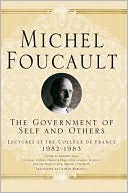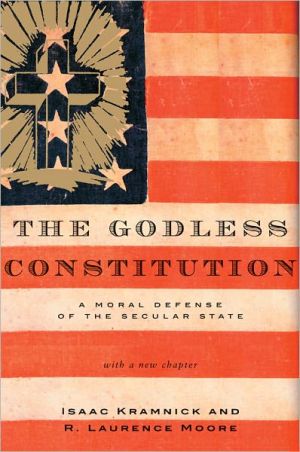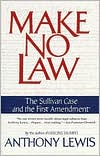Government of Self and Others: Lectures at the College de France 1982-1983
Search in google:
This lecture, given by Michel Foucault at the Collège de France, launches an inquiry into the notion of parresia and continues his rereading of ancient philosophy. Through the study of this notion of truth-telling, of speaking out freely, Foucault re-examines Greek citizenship, showing how the courage of the truth forms the forgotten ethical basis of Athenian democracy. The figure of the philosopher king, the condemnation of writing, and Socrates’ rejection of political involvement are some of the many topics of ancient philosophy revisited here.
Foreword Alessandro Fontana Fontana, AlessandroTranslator's Noteone 5 January 1983: First Hour 1Remarks on methodStudy of Kant's text: What is Enlightenment?Conditions of publication: journalsThe encounter between Christian Aufklarung and Jewish Haskala: freedom of consciencePhilosophy and present realityThe question of the RevolutionTwo critical filiationstwo 5 January 1983: Second Hour 25The idea of tutelage (minorite): neither natural powerlessness nor authoritarian deprivation of rightsWay out from the condition of tutelage and critical activityThe shadow of the three CritiquesThe difficulty of emancipation: laziness and cowardice; the predicted failure of liberatorsMotivations of the condition of tutelage: superimposition of obedience and absence of reasoning; confusion between the private and public use of reasonThe problematic turn at the end of Kant's textthree 12 January 1983: First Hour 41Reminders of methodDefinition of the subject to be studied this yearParresia and culture of selfGalen's On the Passions and Errors of the SoulParresia: difficulty in defining the notion; bibliographical reference pointsAn enduring, plural, and ambiguous notionPlato faced with the tyrant of Syracuse: an exemplary scene of parresiaThe echo of OedipusParresia versus demonstration, teaching, and discussionThe element of riskfour 12 January 1983: Second Hour 61Irreducibility of the parrhesiastic to the performative utterance: opening up of an unspecified risk/public expression of a personal conviction/bringing a free courage into playPragmatics and dramatics of discourseClassical use of the notion of parresia: democracy (Polybius) and citizenship (Euripides)five 19 January 1983: First Hour 75Ion in the mythology and history of AthensPolitical context of Euripides' tragedy: the Nicias peaceHistory of Ion's birthAlethurgic schema of the tragedyThe implication of the three truth-tellings: oracle, confession (l'aveu), and political discourseStructural comparison of Ion and Oedipus the KingThe adventures of truth-telling in Ion: the double half-liesix 19 January 1983: Second Hour 97Ion: A nobody, son of nobodyThree categories of citizenConsequences of political intrusion by Ion: private hatreds and public tyrannyIn search of a motherParresia irreducible to the actual exercise of power and to the citizen's statusThe agonistic game of truth-telling: free and riskyHistorical context: the Cleon/Nicias debateCreusa's angerseven 26 January 1983: First Hour 113Continuation and end of the comparison between Ion and Oedipus: the truth does not arise from an investigation but from the clash of passionsThe rule of illusions and passionsThe cry of confession and accusationG. Dumezil's analyses of ApolloDumezil's categories applied to IonTragic modulation of the theme of the voiceTragic modulation of the theme of goldeight 26 January 1983: Second Hour 131Tragic modulation of the theme of fertilityParresia as imprecation: public denunciation by the weak of the injustice of the powerfulCreusa's second confession (aveu): the voice of confession (confession)Final episodes: from murder plan to Athena's appearancenine 2 February 1983: First Hour 149Reminder of the Polybius textReturn to Ion: divine and human veridictionsThe three forms of parresia: statutory-political; judicial; moralPolitical parresia: its connection with democracy; its basis in an agonistic structureReturn to the Polybius text: the isegoria/parresia relationshipPoliteia and dunasteia: thinking of politics as experienceParresia in Euripides: The Phoenician Women; Hippolytus; The Bacchae; OrestesThe Trial of Orestesten 2 February 1983: Second Hour 173The rectangle of parresia: formal condition, de facto condition, truth condition, and moral conditionExample of the correct functioning of democratic parresia in Thucydides: three discourses of PericlesBad parresia in Isocrateseleven 9 February 1983: First Hour 187Parresia: everyday usage; political usageReminder of three exemplary scenes: Thucydides; Isocrates; PlutarchLines of evolution of parresiaThe four great problems of ancient political philosophy: the ideal city; the respective merits of democracy and autocracy; addressing the Prince's soul; the philosophy/rhetoric relationshipStudy of three texts Platotwelve 9 February 1983: Second Hour 209Plato's Letters: the contextStudy of Letter V: the phone of constitutions; reasons for non-involvementStudy of Letter VIIDion's historyPlato's political autobiographyThe journey to SicilyWhy Plato accepts: kairos; philia; ergonthirteen 16 February 1983: First Hour 223Philosophical ergonComparison with the AlcibiadesThe reality of philosophy: the courageous address to powerFirst condition of reality: listening, the first circleThe philosophical oeuvre: a choice; a way; an applicationThe reality of philosophy as work of self on self (second circle)fourteen 16 February 1983: Second Hour 245The failure of DionysiusThe Platonic rejection of writingMathemata versus sunousiaPhilosophy as practice of the soulThe philosophical digression of Letter VII: the five elements of knowledgeThe third circle: the circle of knowledgeThe philosopher and the legislatorFinal remarks on contemporary interpretations of Platofifteen 23 February 1983: First Hour 259The enigmatic blandness of Plato's political adviceThe advice to DionysiusThe diagnosis, practice of persuasion, proposal of a regimeAdvice to Dion's friendsStudy of Letter VIIIParresia underpins political advicesixteen 23 February 1983: Second Hour 285Philosophy and politics: necessary relationship but impossible coincidenceCynical and Platonic game with regard to politicsThe new historical conjuncture: thinking a new political unit beyond the city-stateFrom the public square to the Prince's soulThe Platonic theme of the philosopher-kingseventeen 2 March 1983: First Hour 299Reminders about political parresiaPoints in the evolution of political parresiaThe major questions of ancient philosophyStudy of a text LucianOntology of discourses of veridictionSocratic speech in the ApologyThe paradox of the political non-involvement of Socrateseighteen 2 March 1983: Second Hour 325End of study of Socrates' Apology: parresia/rhetoric oppositionStudy of the Phaedrus: general plan of the dialogueThe conditions of good logosTruth as permanent function of discourseDialectic and psychagogyPhilosophical parresianineteen 9 March 1983: First Hour 339The historical turnaround of parresia: from the political game to the philosophical gamePhilosophy as practice of parresia: the example of AristippusThe philosophical life as manifestation of the truthThe permanent address to powerThe interpellation of eachPortrait of the Cynic in EpictetusPericles and SocratesModern philosophy and courage of the truthtwenty 9 March 1983: Second Hour 357Study of the GorgiasThe obligation of confession (aveu) in Plato: the context of liquidation of rhetoricThe three qualities of Callicles: episteme; parresia; eunoiaAgonistic game against egalitarian systemSocratic speech: basanos and homologiaCourse Context 377Index of Names 393Index of Concepts and Notions 397







